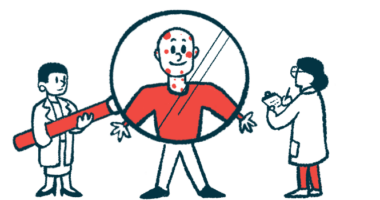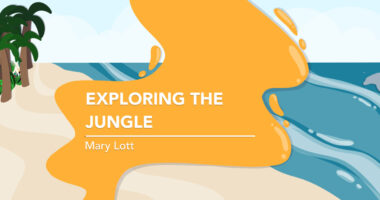About Shoshin and How It May Help CAD Patients

If you have a chronic condition such as cold agglutinin disease (CAD), a Japanese concept called shoshin could help you to change your perspective and see the world, and your disorder, in a different light.
Based on Buddhism, shoshin means “beginner’s mind.”
What is CAD?
CAD is a rare autoimmune disorder in which exposure to cold temperatures causes autoantibodies, called cold agglutinins, to bind to red blood cells. This induces the cells’ disintegration — a process known as lysis — and results in anemia. Symptoms include fatigue, joint pain, and heart problems.
The disorder may manifest as a primary disease, in which its underlying cause is unclear. Another type is secondary CAD, in which the disorder develops following another medical issue, such as an infection, certain types of cancers, or other autoimmune diseases.
What is Shoshin?
The word shoshin comes from Zen Buddhism and means “beginner’s mind.” It refers to having an attitude of openness and eagerness that is free of misperceptions, just as a beginner would have in tackling a new task.
When you are a beginner, your mind is empty and open. You are willing to learn and consider lots of information. As you develop expertise and knowledge, however, your mind naturally becomes more focused and oftentimes, closed.
Applying shoshin to your daily life can help bring back a curious childlike nature that may get lost for most people as they age. Ultimately, shoshin can give more meaning to life.
How can shoshin help me?
While there are no known studies specifically about shoshin and CAD, a University of Zurich study on mind-body medicine and the treatment of chronic illnesses states that seeing things with a beginner’s mind can be effective, usually when combined with conventional medicine, in helping with painful conditions and pain-associated disability.
According to the study, mind-body interventions — which can include relaxation techniques, hypnosis, and yoga — can sometimes lead to a reduction in medication doses and attendant side effects as patients develop skills to maintain a high quality of life despite their illness.
Shoshin also can lower anxiety, which many CAD patients may experience. If you’re anxious about an upcoming appointment or another event, instead of worrying about the outcome, let yourself be curious about what will happen, releasing preconceived notions and embracing being present.
How to rediscover your beginner’s mind
You can train your mind to employ shoshin during simple everyday activities, like having breakfast, for example. Start by viewing what you’re doing with fresh eyes, as if you don’t know what to expect, even though you’ve already done it countless times.
With the breakfast example, really examine the food, plate, and fork, and try to see details you wouldn’t ordinarily notice. Pay attention to the food’s tastes, textures, smells, and sights, as if you aren’t already familiar with them. Everything may start to seem new, maybe even full of wonder. You take nothing for granted and appreciate every bite as a gift that is fleeting and precious.
Daily meditation also is useful in developing shoshin. Try this technique: sit comfortably in a quiet space. Pay attention to your body, then your breathing, while staying in the moment. See if you can rid yourself of thoughts and preconceived notions. Empty yourself so that you can see what’s before you. Notice what your breathing is actually like, right now.
Start by listening more in your conversations with others. Instead of sharing your own experiences, listen to other people’s ideas and achievements and see what you can take away from them.
Why practicing shoshin matters
When you are living with limitations, it can at times feel as though you aren’t moving forward with life. Practicing shoshin can lead you to better experiences. You may be more open to new experiences if you aren’t hampered by prejudgments or fantasies about what should be. This also can eliminate a lot of disappointment and frustration.
Additionally, if you’re procrastinating about a big task, instead of fretting about how hard it will be or how you might fail, be curious about what the task will be like. Pay attention to the details of performing the task rather than trying to avoid them.
If you can learn to become aware of yourself and your mind, you can choose when to release negative energy, and welcome new ideas and more positive and effective ways of thinking.
Last updated: Feb. 18, 2020
***
Cold Agglutinin Disease News is strictly a news and information website about the disease. It does not provide medical advice, diagnosis, or treatment. This content is not intended to be a substitute for professional medical advice, diagnosis, or treatment. Always seek the advice of your physician or other qualified health provider with any questions you may have regarding a medical condition. Never disregard professional medical advice or delay in seeking it because of something you have read on this website.





